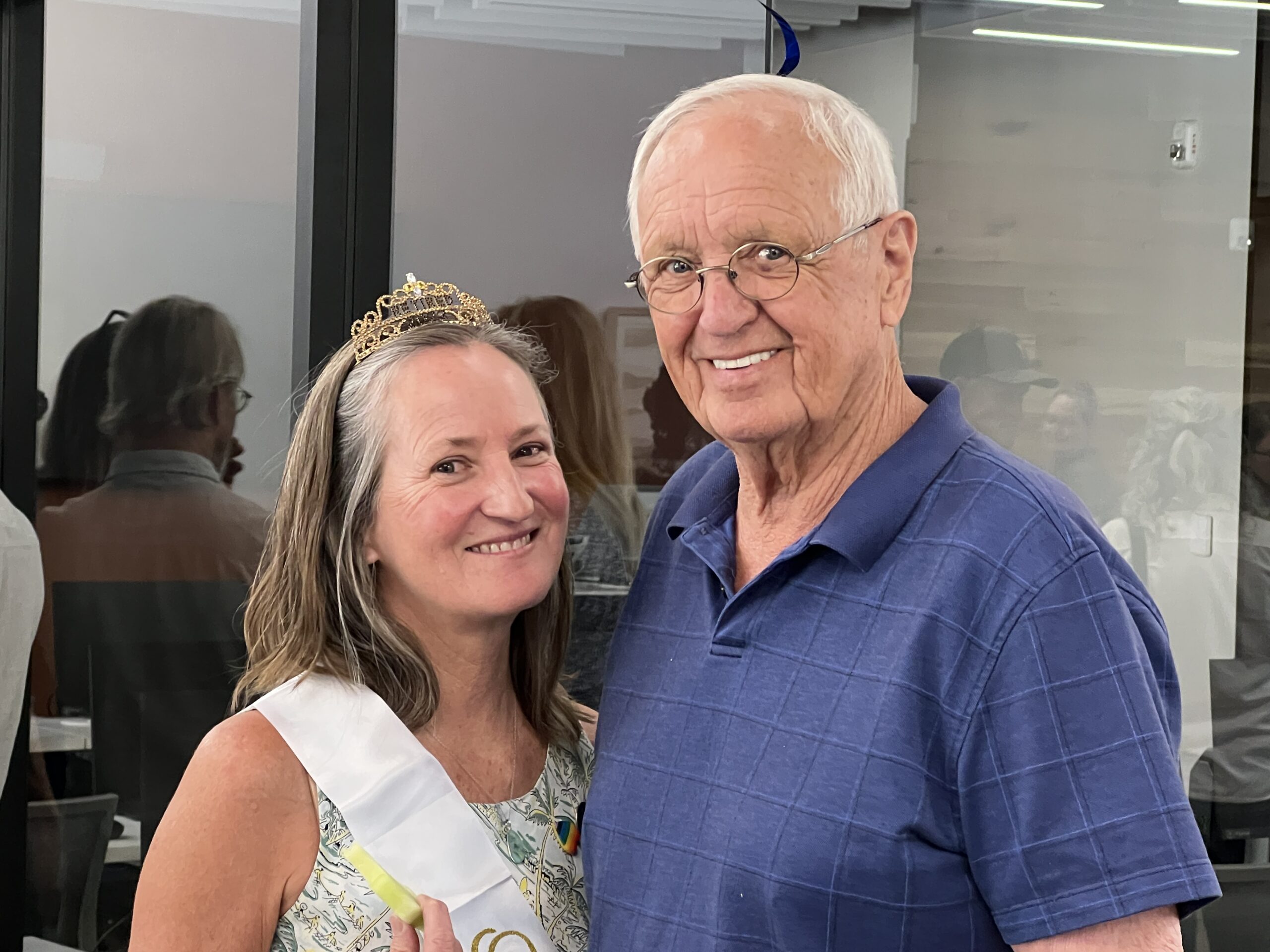Some information may be outdated.
When Lianna Etchberger started working in 1995 for Utah State University’s Uintah Basin campus in Vernal, she had to transition from being a researcher—she had previously worked as a doctoral research associate at the University of Arizona—to a teacher. Her new USU role was as an adjunct lecturer in the biology department.
The transition was easier than she thought: she quickly became interested in how people learn, she said.
“I became really fascinated with the social aspect of teaching,” Etchberger said. “… It’s just so fulfilling, teaching in the statewide campuses. People who are coming to classes are usually non-traditional students, and something in their life has made them decide to get a degree. They come in and they really want to be there: they’re eager to learn. I think it’s really different from teaching at a larger university.”
She excelled at it, becoming a National Academies teaching fellow and mentor, a full professor at USU, and eventually the associate vice president of USU Moab. At the end of the month, she’s retiring, leaving a legacy of 28 years at USU—six as the associate vice president.
The Moab Sun News chatted with Etchberger about her career and what’s next for her.
Moab Sun News: What are you most proud of accomplishing in your USU career?
Etchberger: Probably the new USU Moab building. Everything I knew about teaching and what’s important for students to learn and feel comfortable in a place went into the building. I tried to be really inclusive—part of what I did with the National Academies mentor program was highlighting inclusion—especially with our Native students.
The building is a culmination of everything I learned and all my 28 years at USU: it’s nice to leave a legacy, a place for people to do good things.
Moab Sun News: In what ways do you think your work influenced you personally?
Etchberger: I learned a lot. I went to school in Los Angeles then New York, then all of a sudden I’m in Vernal, Utah. But I really liked being in rural towns and being able to see the impact of teaching, and getting to know my students instead of having hundreds of them.
I taught biology, so once I had a student raise his hand and say, ‘I don’t believe anything you’re saying, but I’ll figure out how to pass the test.’ There were these different belief systems, and I had always been around like-minded people. Then all of a sudden I’m in this place where people have different opinions—in a classroom, how do I get them to understand what I’m teaching? How do I teach in a community where people have a lot of different ways of thinking? How do you communicate with people who are different than you, and how do you find common ground?
I think that really made me a better person. And also being in these rural places like Moab, there are amazing outdoor spaces to explore. I’m so glad I got to be here instead of being in a city for my whole life—it really changed my life.
Moab Sun News: What will you do with your time now?
Etchberger: My daughter got into graduate school at the University of Arizona, so my husband and I are going to move to Tucson so we can be with her for the next few years before she’s onto whatever her next thing is. It’s a nice full circle, to come back here with her.
This interview has been edited for length and clarity.
Appreciate the coverage? Help keep local news alive.
Chip in to support the Moab Sun News.





